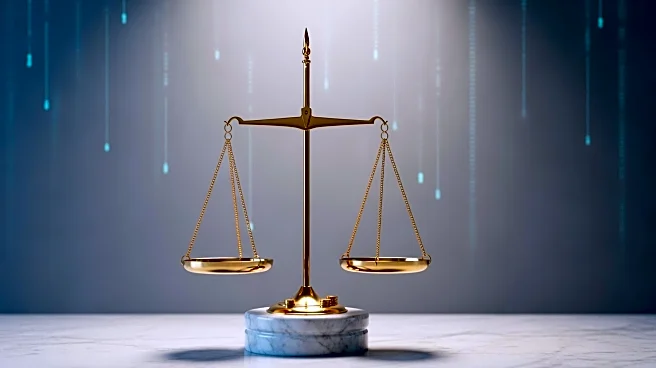What's Happening?
President Trump has pardoned Changpeng Zhao, founder of Binance, who was sentenced to prison for violating U.S. money laundering laws. The pardon, confirmed by the White House, has reignited debate over
the administration's embrace of cryptocurrency, as the Trump family's investments in the industry have deepened. Zhao, known as 'CZ', had completed his prison sentence and Binance was ordered to pay $4.3 billion after a U.S. investigation found it helped users bypass sanctions. The pardon lifts restrictions on Zhao's financial ventures, although his regulatory standing remains unclear.
Why It's Important?
The pardon is significant as it reflects the Trump administration's supportive stance towards the cryptocurrency industry, which has been a key focus of President Trump's economic policy. The decision could influence the regulatory environment for cryptocurrency in the U.S., potentially leading to more favorable conditions for industry growth. Critics, including Senator Elizabeth Warren, have raised concerns about the potential conflict of interest, given the Trump family's investments in cryptocurrency ventures. The pardon may also impact public perception of the administration's commitment to justice and fairness.
What's Next?
With the pardon, Zhao may seek to re-engage with Binance and other financial ventures, although his ability to lead Binance directly remains uncertain. The decision could prompt further discussions on the ethical implications of presidential pardons, especially in cases involving personal financial interests. Stakeholders in the cryptocurrency industry may advocate for clearer regulatory guidelines to ensure fair competition and transparency. The pardon may also influence future policy decisions related to cryptocurrency and digital assets.
Beyond the Headlines
The pardon highlights the ethical and legal dimensions of presidential clemency, particularly when it intersects with personal financial interests. It underscores the growing influence of cryptocurrency in shaping political and economic landscapes, potentially affecting public trust in the industry and its leaders. The decision may contribute to long-term shifts in how cryptocurrency is perceived and regulated in the U.S.











